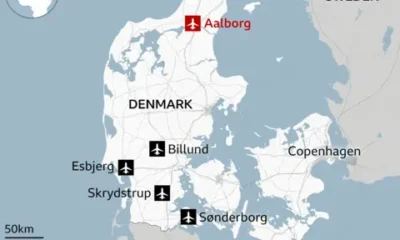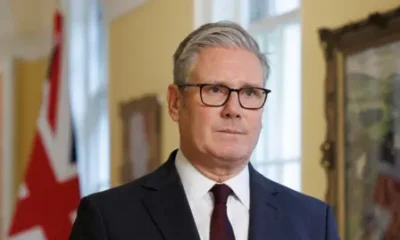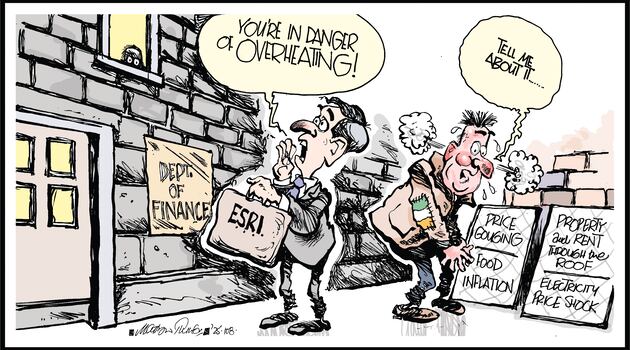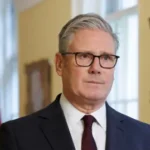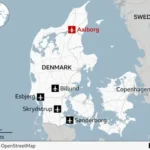Opinion
Justine McCarthy: If Northerners had a vote, Catherine Connolly would be our next president
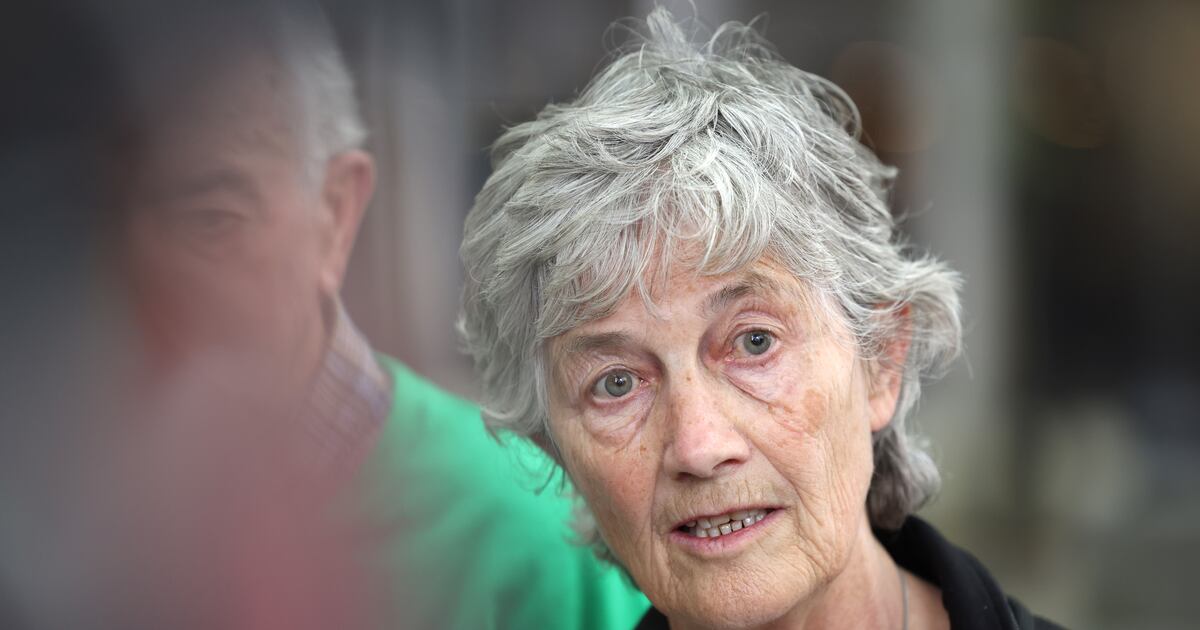
Read more on post.
Catherine Connolly’s presidential election campaign would be a stroll to the park if Ireland honoured all its citizens’ rights. Instead, the Independent candidate is being accused of lip service by two parties that have ensured the exclusion of hundreds of thousands of potential voters from choosing their head of state.
Irish citizens living in Northern Ireland are allowed no say in an election that is being billed as crucial to their future constitutional status. Sinn Féin insists the next president must “champion a united Ireland”. Fine Gael says its candidate, Heather Humphreys, as a Presbyterian from a Border county, would symbolically unite the island. Fianna Fáil presents its candidate, Jim Gavin, as being Border-blind due to his involvement with the all-island GAA. Yet those living in the North’s six counties are silenced in the election. Their continuing exclusion reduces them to nominal citizens.
Addressing his party’s annual conference last weekend, DUP leader Gavin Robinson rebuked the Republic for what he called its “institutional intolerance of Protestant culture and heritage” but the southern State’s starker prejudice is against its own citizens in the North. Under the 1956 Irish Nationality and Citizenship Act, affirmed by the 1998 Belfast Agreement, people in Northern Ireland are entitled to choose to be citizens of Ireland. As such, the Irish President is their president. Ever since Mary Robinson’s election to the Áras in 1990, the office’s holders have striven to represent them with their presence and their utterances. But across the Liffey in Government Buildings the realpolitik means that extending voting rights to Northern citizens would be electoral hara-kiri, virtually handing Sinn Féin the presidency on a plate.
Sinn Féin, Connolly’s major backer, is the biggest party in Northern Ireland and the biggest all-island one. It got 250,388 first-preference votes in the most recent Assembly elections in May 2022. On a crude calculation, if you add the SDLP’s 78,237, Aontú’s 12,777 and, conservatively, a third of both the Alliance Party’s 116,681 votes and People Before Profit’s 9,798, you get more than 380,000 potential active ethnonationalist voters in the North in 2022. While some – particularly SDLP voters – might back Fianna Fáil, they would be a proportion of a larger turnout than the 63.6 per cent three years ago, attracted to polling stations by the unprecedented opportunity to cast their preference for president. Northerners have a vested interest in an election portrayed as seminal for the abolition of partition. Unlike voters in the rest of the island, the constitutional status is a priority issue with some voters in the North. Respondents there ranked it third, behind cost of living and healthcare, in a survey conducted last year by researchers at the University of Liverpool.
Denying legions of potential voters the right to choose their first citizen is an extreme exercise in gerrymandering. This continuing snub to our compatriots shrinks the winner’s mandate. Outsiders might presume it to be an Irish joke that Rostrevor resident Mary McAleese could not cast a vote for herself when she won the 1997 election. Once the Irish Government-funded Narrow Water Bridge over Carlingford Lough is completed, the journey from Rostrevor to Omeath in the Republic will be less than five miles.
The delaying by successive governments in enfranchising Irish citizens in Antrim, Armagh, Derry, Down, Fermanagh and Tyrone evokes Ronnie Corbett.
He made a plea to his mother that he wanted to marry and pass on his genes and she replied that she had given them to Oxfam – such was her determination to keep her 42-year-old son under her roof as a half-fledged adult. In 2017, during the Brexit negotiations, then taoiseach Leo Varadkar promised that “no Irish government will ever again leave Northern nationalists and Northern Ireland behind”. Yet four years earlier, a constitutional convention had recommended that a referendum be held to extend presidential voting rights. An Oireachtas Bill providing for such a referendum in 2019 turned out to be fiction. As an anonymous wag once scribbled on Samuel Beckett’s headstone in Montparnasse Cemetery, “we’re still waiting”.
[ What did voters say about governing a united Ireland?Opens in new window ]
Belfast woman Emma de Souza was hailed as something of a national hero when she successfully sued the British government to establish her right to be considered Irish from birth. Yet, unless she has since registered to vote in the Republic as a resident, she is prohibited from participating in picking her president. A commitment to extend voting rights in presidential elections was contained in the 2020 programme for government but it has been dropped from the current one. In another country, this would be at least as topical during the election campaign as is the nominations requirement to be a contestant, about which there has been much olagóning. The silence is indicative of a news media that, by and large, treats Sinn Féin with deep suspicion. While it may be an understandable attitude among those in the South who remember the horrors of the Troubles, it is indefensible to refuse Irish citizens in the North who lived through it their right to vote for their president. Parity of esteem is the foundation principle of the Belfast Agreement but, when it comes to electing a president, there is no equal regard for Irish citizens living on this island.
The political establishment’s double standard is so ingrained it seems unaware of it when accusing Connolly of being a latecomer to the ideal of Irish unification. During a Dáil debate on Brexit in 2020, she said: “If anything comes out of [it], I hope it will be a reunited Ireland by peaceful means.” That and other of her comments on the topic are too awkward for her critics to mention while they use Northern Ireland as a weapon to damage her campaign. Ditto her comment about Hamas being part of Gaza’s fabric and the right of Palestinians to self-determination. Unpalatable perhaps, but true. Had the same truth not been acknowledged about the IRA, there would not have been a peace process. There would be no Belfast Agreement.
While these political grenades get flung around in the Republic, Irish citizens who lived with the reality in Northern Ireland are forced to sit silently and watch as mere spectators. It is wrong.
Opinion
Diarmaid Ferriter: Two out of three candidates for the presidency can’t speak fluent Irish. That matters
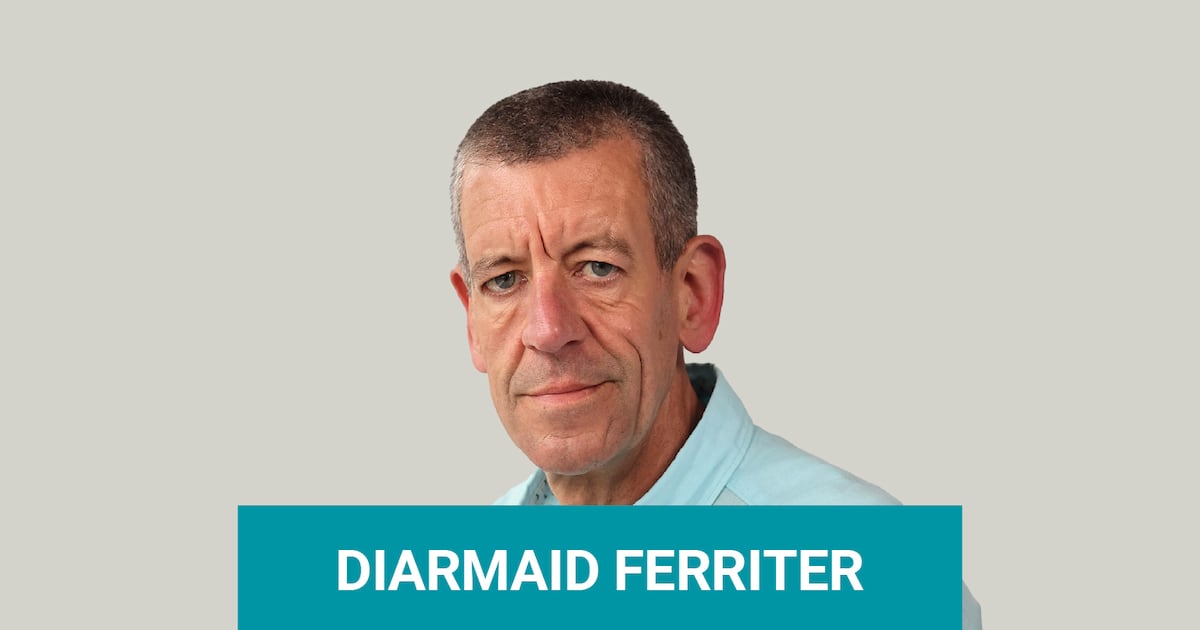
Read more on post.
In May 1973, when launching his bid to become president of Ireland, former Fianna Fáil minister Erskine Childers was asked about his ability to speak Irish.
Childers replied that he did not speak the language, “but that if he needed the assistance of people to advise him on linguistic affairs, he would seek their advice”.
This was a curious “othering” of the Irish language by a candidate seeking to become head of a state where, according to the Constitution, “Ós í an Ghaeilge an teanga náisiúnta is í an phríomhtheanga oifigiúil” (“The Irish language as the national language is the first official language”).
This is followed by the assertion in the Constitution that “Glactar leis an Sacs-Bhéarla mar theanga oifigiúil eile” (“The English language is recognised as a second official language”). Childers saw no reason to commit to learning the first official language.
Childers was seeking to replace Éamon de Valera as president, the same de Valera who in February 1939 had said in the Dáil: “If I were told tomorrow: ‘You can have a united Ireland if you give up your idea of restoring the national language to be the spoken language of the majority of the people’, I would for myself say no’.”
Like many of his contemporaries, de Valera had been a committed Irish language enthusiast; the embracing of Conradh na Gaeilge (the Gaelic League), established in 1893, led to membership of 100,000 in 900 branches by 1905.
For many of that revolutionary generation it was of paramount significance; historian Brian Ó Conchubhair suggests it “set the cultural agenda for twentieth century Ireland … not least because it was the smithy in which almost all Irish leaders forged their intellectual and cultural souls”.
In 1973, eighty years after the establishment of the league, there was certainly no sign of a united Ireland and the business of state and politics, as with previous decades, was conducted mostly in English.
Childers’s lack of Irish language proficiency was no barrier to becoming president; he duly won the election. During the campaign, the minister for Posts and Telegraphs in the Fine Gael/ Labour Coalition, Conor Cruise O’Brien, suggested the inability of Childers to speak Irish was proof Fianna Fáil had been “living a lie” in relation to its commitment to the language; the other candidate, Fine Gael’s Tom O’Higgins, could speak Irish, said O’Brien, “purposefully, effectively and substantially, and not just as a ritual observance”.
Interestingly, O’Brien did not use the word “fluently”.
[ The Irish Times view on presidential nominations: Too narrow a fieldOpens in new window ]
After Childers’s election, the Language Freedom Movement (LFM) hailed his victory as proof that “the bogus and mischievous link that certain elements have tried to forge between language and nationality has now finally been rejected by the Irish people”. The LFM had been launched in March 1966 and hosted an acrimonious meeting at the Mansion House in Dublin in September that year that witnessed scuffles, stage storming and flag waving and tearing as it sought to argue for diluting the tie between the state and the language and decried compulsion, suggesting the Irish language had become “the tail that wagged the nation”.
In parallel, a Gaeltacht civil rights movement also prompted militancy, including from writer and political activist Máirtín Ó Cadhain who asserted that “sí athréimniú na Gaelige athghabháil na hÉireann” (“the restoration of Irish means the repossession of the country”).
The Gaelic League may have started as a cultural organisation, but the language question could not remain outside the politics of nationalism; indeed, one of the reasons the founder of the League, Douglas Hyde, resigned as its president in 1915 was because of its increased politicisation. But his significance culturally was also one of the reasons he became the first president of Ireland without an election, Fianna Fáil and Fine Gael recognising in 1938 that his status as a linguistic crusader placed him above Civil War enmities. He would be an “Uachtaráin fhiúntaigh” (“worthy president”), suggested de Valera at his inauguration, largely because of his “foresight in saving from death our own sweet language”. That may have been overly optimistic; Hyde told journalists the same year “I hope we shall now develop along the lines of a Gaelic nation … it may not come in my lifetime. It may not come in yours either”.
The politics around the Irish language is far from moribund today. An estimated 25,000 people protested in Dublin last Saturday demanding protection of the language. But in tandem, we now have two out of three candidates for the presidency – Heather Humphreys and Jim Gavin – who cannot speak fluent Irish. During the general election campaign of 2011, one of the most notable events was a three-way Irish language debate between the leaders of the main Irish political parties, Eamon Gilmore, Enda Kenny and Micheál Martin, which generated pride regardless of political preference. That cannot happen during this presidential campaign, and that is something to be lamented.
Opinion
Recognising statehood is the minimum – now the EU must protect Palestine with money

Read more on post.
Applause rang out through the UN general assembly this month after it endorsed the so-called New York declaration on the revival of the two-state solution between Israel and Palestine. Adopted by a large majority, 142 countries, this initiative from France and Saudi Arabia offers a rare glimmer of hope in one of the most devastating crises of our time.
Separately, the conclusions of the UN commission of inquiry have echoed what human rights organisations and genocide experts have been warning for months: Israel is committing genocide in Gaza. As the ground invasion of Gaza City intensifies, the international community has a legal and moral obligation to act. This includes the immediate imposition of sanctions on Benjamin Netanyahu’s government to halt war crimes.
This year’s UN general assembly in New York is crucial – not only in addressing the atrocities unfolding in Gaza but also in advancing the long-delayed recognition of a Palestinian state. For Europe in particular, with the EU’s global standing jeopardised by its response to the war in Gaza, the gathering of world leaders is a litmus test.
More than three decades after Yasser Arafat and Yitzhak Rabin shook hands to seal the “Oslo accords”, peace seems more distant than ever. Although European countries and institutions formally support the prospect of a viable two-state solution, the reality on the ground shows that more principled and decisive action is needed.
While the atrocities in Gaza continue, the Israeli government is seriously and explicitly undermining the prospects for Palestinian self-determination. The Israeli government is expanding West Bank settlements in complete violation of international law, and allows settler violence to continue with impunity. It is also undermining the Palestinian Authority by withholding tax revenue, making it harder to pay salaries and to uphold services.
EU countries including Sweden and Spain had already recognised Palestine. Since France’s announcement in July that it would recognise Palestine, the UK, Malta, Belgium, Portugal, Luxemburg, Canada and Australia have followed suit or expressed their intention to do so soon. Further recognition by European states would only strengthen this momentum, sending a clear and unified message that the EU remains committed to the two-state solution.
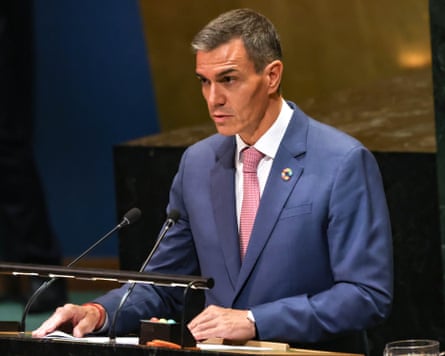
And there is more to be done. While we work to put pressure on Israel to halt the war crimes and stop undermining the prospects of a Palestinian state, the EU must simultaneously work to strengthen Palestine in concrete ways.
As long ago as 1997, the EU signed an interim association agreement with the Palestinian Authority. In light of escalating settler violence in the occupied West Bank and the Netanyahu government’s project for settlement in the so-called E1 area that would in effect cut off the West Bank from East Jerusalem and divide the territory in two, it is time to go further.
Upgrading EU ties with Palestine to a fully fledged association agreement, with provisions for enhanced financial support, expanded trade relations and a more structured political dialogue, is a necessary step to reinforce the Palestinian Authority’s state-building efforts and reaffirm the EU’s commitment to a two-state solution.
after newsletter promotion
According to Netanyahu, a two-state solution is incompatible with Israel’s security interests. The opposite is true. Israel’s peace and security require sovereignty and security for both Israel and Palestine. Israel cannot deny Palestine this without undermining the possibility of a conciliatory dialogue. Palestinians, just like Israelis, deserve freedom, security and dignity.
-
Pedro Sánchez is the president of the Socialist International, secretary general of PSOE and the prime minister of Spain; Magdalena Andersson is a former prime minister of Sweden and leader of the Social Democratic party in Sweden; Frans Timmermans is leader of the Green-Left-Labour alliance in the Netherlands; Elly Schlein is leader of the Democratic party in Italy; Stefan Löfven is a former prime minister of Sweden and president of the party of European Socialists and Democrats.
-
Culture3 days ago
Taylor Swift’s new cinema outing generates more than €12million in just 24 hours
-
Politics3 days ago
European Parliament snubs Orbán with vote to shield Italian MEP from Hungarian arrest
-
Health4 days ago
EU renews support for WHO’s Universal Health Coverage Partnership
-
Culture2 weeks ago
Life, loss, fame & family – the IFI Documentary Festival in focus
-
Culture3 days ago
Twilight at 20: the many afterlives of Stephenie Meyer’s vampires
-
Environment6 days ago
Key oceans treaty crosses threshold to come into force
-
Culture2 months ago
Fatal, flashy and indecent – the movies of Adrian Lyne revisited
-
Culture1 week ago
Farewell, Sundance – how Robert Redford changed cinema forever






